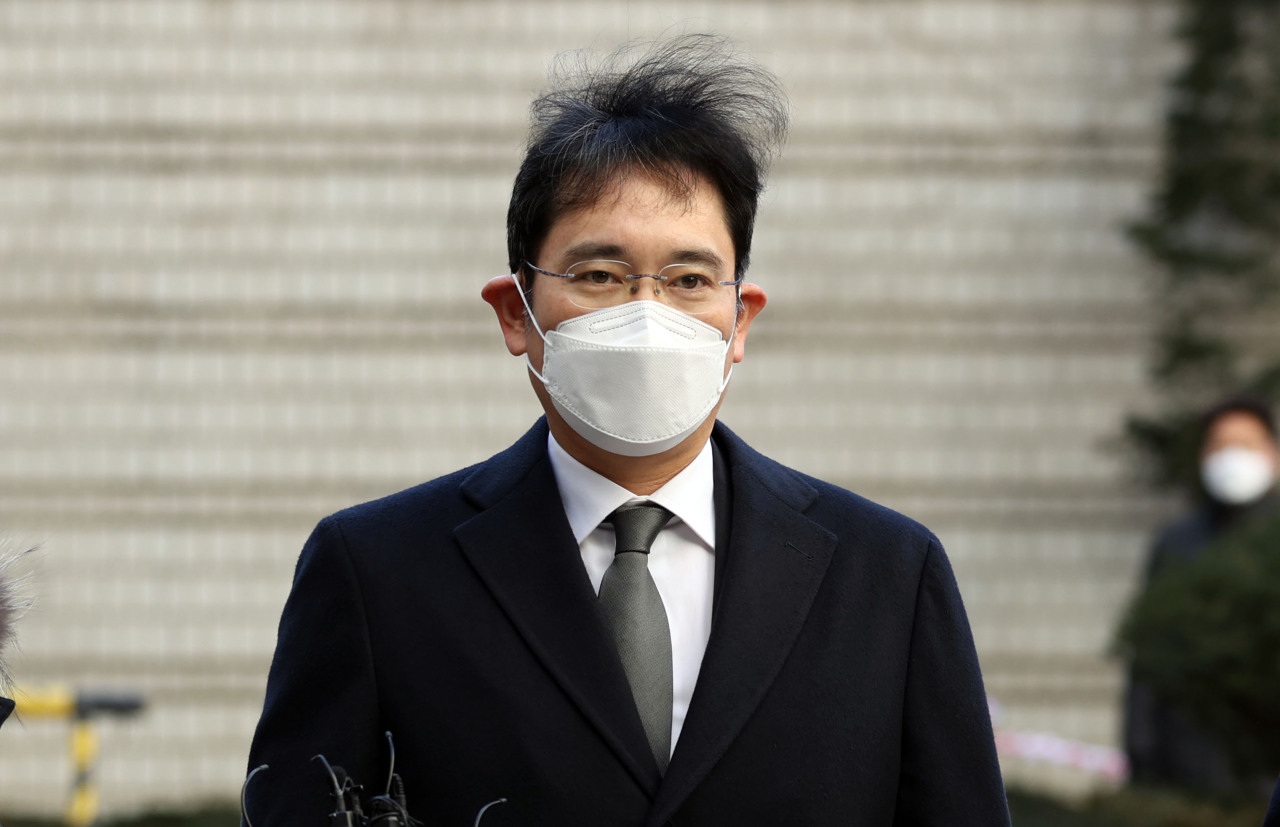 |
Samsung Electronics Vice Chairman Lee Jae-yong heads to court to attend a hearing at the Seoul High Court in Seocho-gu on Wednesday. (Yonhap) |
Prosecutors demanded a nine-year prison term for Samsung Electronics Vice Chairman Lee Jae-yong, who was indicted on bribery charges involving former President Park Geun-hye, at a final retrial Wednesday.
The court designated Jan. 18 next year as the date for a final ruling.
Prosecutors also demand seven-year jail terms for two other former Samsung executives, Jang Choong-ki and Park Sang-jin.
“Samsung is a group with such overwhelming power that it is said that Korean companies are divided into Samsung and non-Samsung,” prosecutors said on the day. “For the sound development of our society, Samsung’s position is to show a firm attitude in corruption and set an example.”
In his final statement, Lee said, "I stood here with a regretful heart," adding, "When my father, Chairman Lee, suddenly collapsed, I sat down in a private meeting with former President Park. If it were now, I would never have dealt with it like that.”
He added, "I want to make a new Samsung that is appropriate to the dignity of the country and be a good son to my respectable father.”
The case dates to February 2017, when special prosecutor Park Young-soo indicted Lee on charges of paying about 30 billion won ($27.6 million) to former President Park Geun-hye and her confidant Choi Seo-won, who was then known as Choi Soon-sil, in return for their support in enabling Lee to succeed his father at the helm of the group.
Later that year, Lee was convicted and sentenced to five years in prison, but he returned to his post at Samsung in 2018 after an appeals court reduced his sentence to 2 1/2 years, suspended for four years. But in August last year the Supreme Court sent the case back to the Seoul High Court, saying Lee’s sentence was too lenient and should have reflected an additional 5 billion won of bribes paid to Park and Choi.
The Seoul High Court, which took over the case, began Lee’s retrial in October last year and suggested Samsung create an internal compliance committee, saying this would be taken into account at sentencing. The special prosecutors immediately objected to the idea and asked the Supreme Court to reassign the case to new judges, labeling the original judges as “biased.” But the Supreme Court denied the request, and the retrial resumed in October this year.
The biggest issue now is whether Lee will be sent back to prison.
Earlier, the special prosecutor said Lee should get a sentence of at least five years considering his active involvement in the bribery.
Lee’s lawyers rebutted this, saying Samsung passively provided the funding after being pressured by the former president.
But because the Supreme Court recognized 5 billion won more in bribes than the appeals court that cut Lee’s sentence, imprisonment seems likely.
Attention is also being paid to the extent to which Samsung’s self-created compliance committee will be reflected in the sentencing.
Since the court suggested that Samsung establish a compliance committee after the retrial began last year, Samsung immediately did so and held a rare press conference declaring that Lee’s children would not succeed him in controlling the group. It also said it was suspending its anti-union policy.
If the judiciary grants probation to Lee, taking into account the compliance system, uncertainties related to Samsung Group are expected to be substantially resolved. However, even after the trial is over, judicial risk remains, as a new trial regarding Lee’s alleged illegal management succession will begin early next year.
By Shin Ji-hye (
shinjh@heraldcorp.com)








